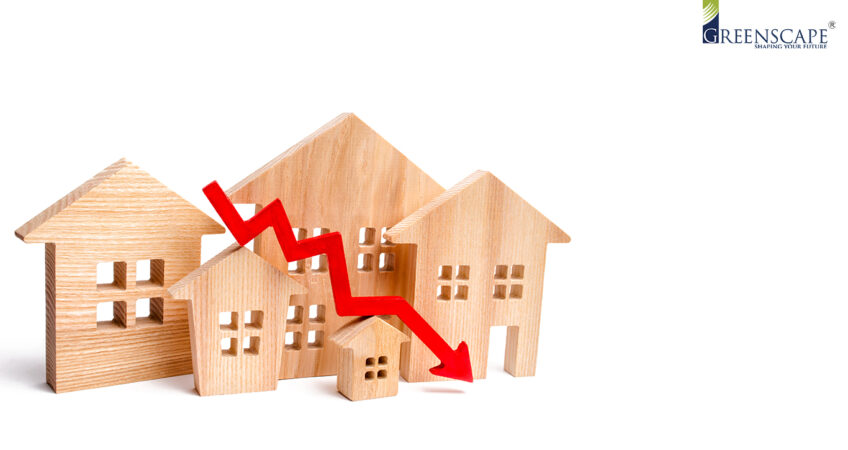Impact of Corona Virus on Indian Real Estate

The COVID 19 pandemic has changed the landscape of Indian real estate in numerous ways. It is important for both real estate professionals and the general population to understand these changes so as to better prepare for how these industries might progress in the coming months and years. Some fundamental points about the impact of the virus have been discussed here in order to give the reader a broad overview of the situation in the Indian real estate market.
Initial COVID 19 Reactions
In the initial months of 2020, India had to place stringent measures in place to slow down the rapid spread of the coronavirus. The prolonged lockdown from March 25th to June 7th, in particular, had a marked impact on nearly every industry in the country. As businesses started closing down, economic agencies around the world had to cut their growth forecasts for India. For instance, the IMF (International Monetary Fund) projected the Indian economy to reduce at the rate of 10.3% in their October World Economic Outlook report. Such estimations made foreign investment in Indian real estate slow down noticeably and hence made it unstable. Overall, the pandemic had a detrimental effect on real estate just as it did on most industries in 2020.
Recent COVID 19 Impacts
In recent months, there has been a large spike in the number of coronavirus cases. This has necessitated severe restrictions like partial lockdowns and night curfews in major states like Maharashtra, Delhi, and Gujrat. Such unforeseen restrictions are bound to impact the real estate market as it makes agreements, contracts and deadlines difficult to reasonably enforce. There has also been a notable increase in home loan interest rates (+25 basis points) by SBI bank. Though whether this is the sign of an upcoming trend is yet to be seen. Fortunately, the introduction of vaccination programmes since mid-January (especially the recent opening of vaccines to 18-45-year-olds) has been helping secure populations against the virus and economic activity is expected to gain momentum in the second half of 2021. In spite of the surge in cases, the real estate market started showing small signs of recovery. How quickly it might return to normalcy depends largely on how efficiently the nation is inoculated.
Effect on the Indian Housing Market
One of the consequences of COVID has been a marked reduction in demand for housing real estate. This has caused dynamic price reductions in the market. While this is a good chance for the few people looking to invest in the Indian housing market, it poses a significant challenge to many realtors’ financial stability. Which has made it harder for them to launch projects or even deliver pre-arranged properties. Furthermore, most home buyers are postponing their real estate purchases as they wait to see how the coronavirus situation evolves. There are many other smaller problems as well. Shortage of labour, delayed construction material delivery, closure of leisure facilities, etc.
Impact on Builders
Builders have had to depend significantly on government aid because coronavirus had a bad effect on the financial sectors of India. This made borrowing capital difficult even though developers held unsold stocks worth approximately Rs 6 lakh crores as of September 2020. A near-halt situation on construction activity due to the lockdowns across India and delays in supply of manufacturing material and equipment from China is expected to further push delivery timelines of ongoing projects. Consequently increasing the overall cost for developers. Considering the tension between the two neighbour countries, builders here might be forced to postpone orders or renege on their agreements entirely.
Effects on Corporate Real Estate
Unsurprisingly, most companies in India have mandated working from home rather than on-site wherever possible. This has been quite detrimental for developers of office spaces and other white-collar spaces. From January to September of 2020, net office space leasing fell by 47%, representing approximately 15 million sq ft of real estate unutilised. While many developers of office spaces have held onto their office real estates in India, there might be a significant decrease in this market if lockdown restrictions persist for an extended time frame. Especially considering the possibility that work from home may continue to be practised post-COVID, which would not bode well for this niche of real estate.
Despite the many negative impacts of the coronavirus, the Indian real estate market is expected to see better days later in 2021. As COVID is slowly removed from the population, the economy is expected to recover, bringing real estate opportunities and industries with it. Having said that, we shouldn’t expect a total return to the pre-pandemic days considering the time this recovery will take and the few niches that might need to be changed drastically in a post COVID world.



